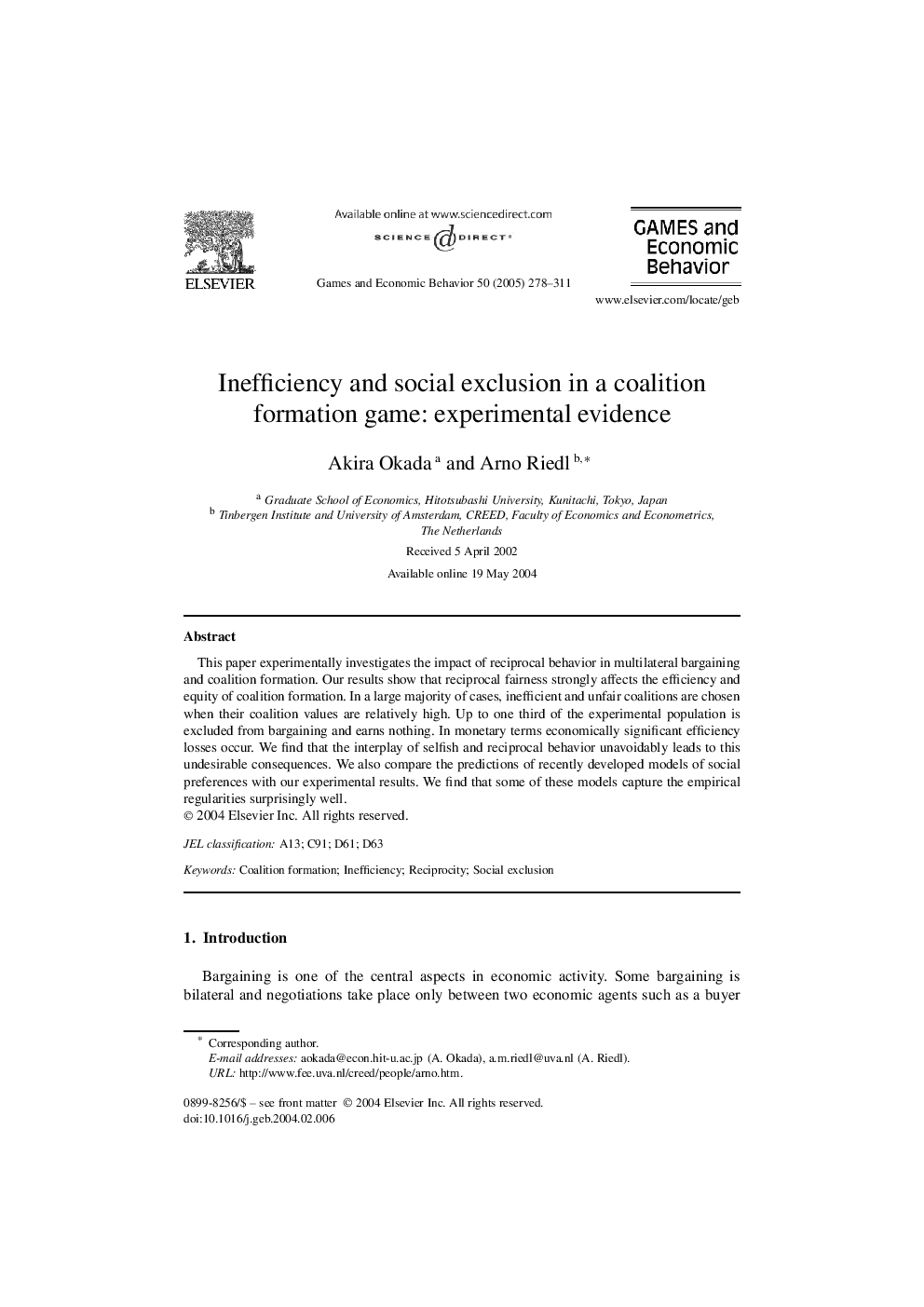| Article ID | Journal | Published Year | Pages | File Type |
|---|---|---|---|---|
| 9551743 | Games and Economic Behavior | 2005 | 34 Pages |
Abstract
This paper experimentally investigates the impact of reciprocal behavior in multilateral bargaining and coalition formation. Our results show that reciprocal fairness strongly affects the efficiency and equity of coalition formation. In a large majority of cases, inefficient and unfair coalitions are chosen when their coalition values are relatively high. Up to one third of the experimental population is excluded from bargaining and earns nothing. In monetary terms economically significant efficiency losses occur. We find that the interplay of selfish and reciprocal behavior unavoidably leads to this undesirable consequences. We also compare the predictions of recently developed models of social preferences with our experimental results. We find that some of these models capture the empirical regularities surprisingly well.
Related Topics
Social Sciences and Humanities
Economics, Econometrics and Finance
Economics and Econometrics
Authors
Akira Okada, Arno Riedl,
